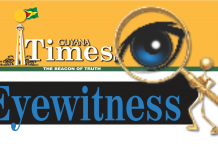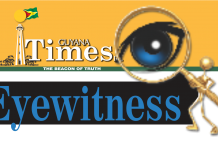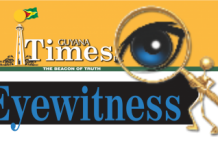…in Barbados
Barbados will be pulling the curtains down on British colonialism come Nov 21. On that day, as per votes already taken in their National Assembly and Senate, Dame Sandra Mason will become Barbados’s first President. Yep! The island once known as “Little England” will be removing Britain’s Queen Elizabeth as Head of State to become a Republic!! Imagine that…Barbados a Republic! Nov 20th was their Independence Day, and will now cover both events.
While part of present-day St Kitts was settled by the British in 1623, Barbados was wholly claimed as British in 1625. This marked the real beginning of the British Empire in this neck of the woods. They’d already settled in Virginia in 1607, to form the first of the thirteen colonies that would rebel to form the US in 1776. Now, Barbados is only 166 square miles, but, for quite a while back in those days, it was more valuable as a colony to the Brits that the American colonies! Sugar was then king…and Barbados was the home of the King until surpassed by Jamaica, and much later by British Guiana.
Barbados’s colonisation goes back so far that its earliest labourers were poor Whites from Ireland and elsewhere. They were the first indentured labourers to the Caribbean – and included many who might’ve been kidnapped. These White Indentureds later worked alongside enslaved Africans in the sugar and tobacco plantations. They were distinguished by their religion – the Whites were Christians and had “souls”, while the Africans, the Christian Church insisted, were “pagan” and had no souls; as such, they were suitable to be chattel property!! The White Indentureds would become the “Redlegs”, or poor Whites who remain in Barbados to this day – but not so poor anymore!! Like the White convicts who were sent to populate Australia…and who are now so racist!
Man’s inhumanity to man was codified right there in Barbados when they adopted their Slave Code in 1661. They patterned it on the earlier Spanish and Portuguese models, and in turn it was to be the model for the rest of the British colonies here and elsewhere. In fact, what’s important, as the slave form of labour became the norm, was that Barbados set the standard in so many ways. One was to actually boast about their greater assimilation into British norms – even though the Whites snickered at their pretentions, as can be gleaned from novels of the era.
Barbados had already removed Lord Nelson’s statue from its capital last November – recognising that he was a staunch defender of slavery. But the question now is one for all former colonies: How free will they be in the age of new-colonialism after the COVID pandemic??
…on coups
One of the legacies from our British pretentions was to smarmily smirk at those “Latin American types who were oh-so prone to coups and putsches!! After all, Charles 1 was beheaded in 1649, just before the Barbados settlement. Then a couple of lieutenants in the Trinidad army tried to overthrow their Oxford-trained Prime Minister Eric Williams in 1970! That petered out quickly enough, as did the Black Power ideology that fuelled it.
But, 20 years later, Trinidad again let down the “keeping up of “our” British standards” side when Abu Bakr invaded TT Parliament with 100 followers and took PM ANR Robinson and other MPs hostage. Widespread violence and vandalism ensued, and when Abu Bakr finally surrendered 6 days later, he was charged with treason. But, amazingly, the Court of Appeals ordered him released, and he was never rearrested – even though the Privy Council invalidated the amnesty given to him and his followers before they surrendered. Bakr remained free for 31 years, but is now dead.
May the 24 killed find peace.
…in Haitian tragedy
Meanwhile Haiti, the first Caribbean island to seize independence, continues its downward spiral. The gang leader who kidnapped 17 American missionaries has threatened to execute them unless the gang receives US$1M for each of those kidnapped.
That’s almost the bonus for 10M barrels of oil!!











